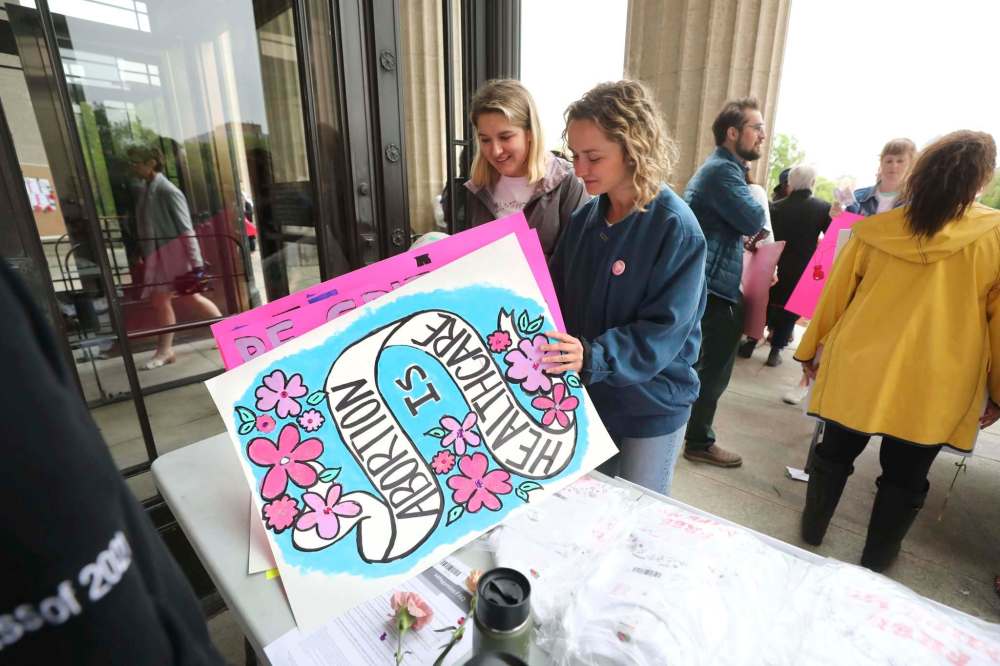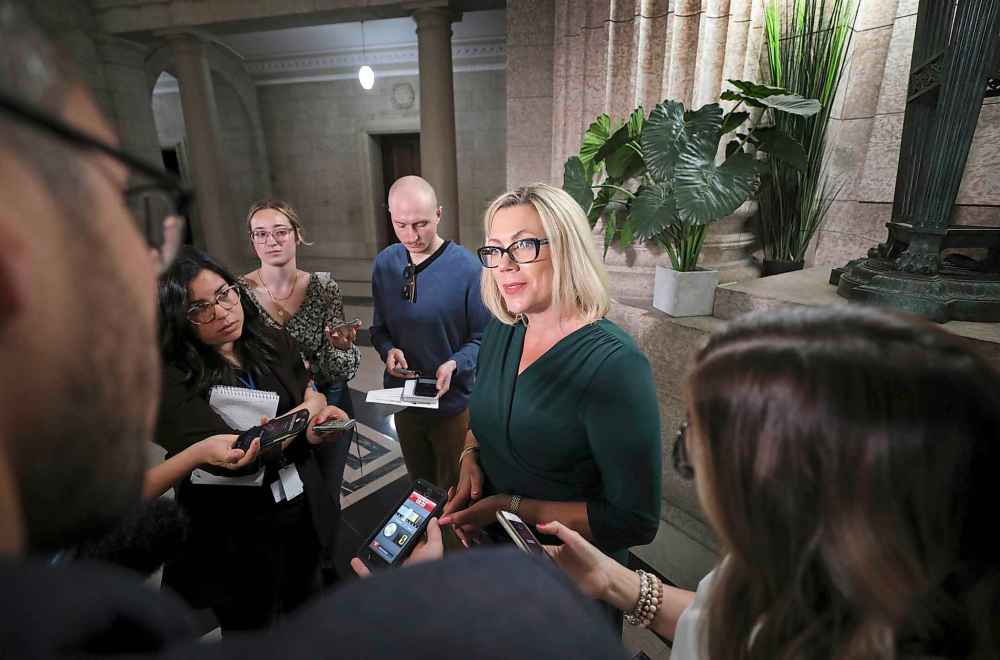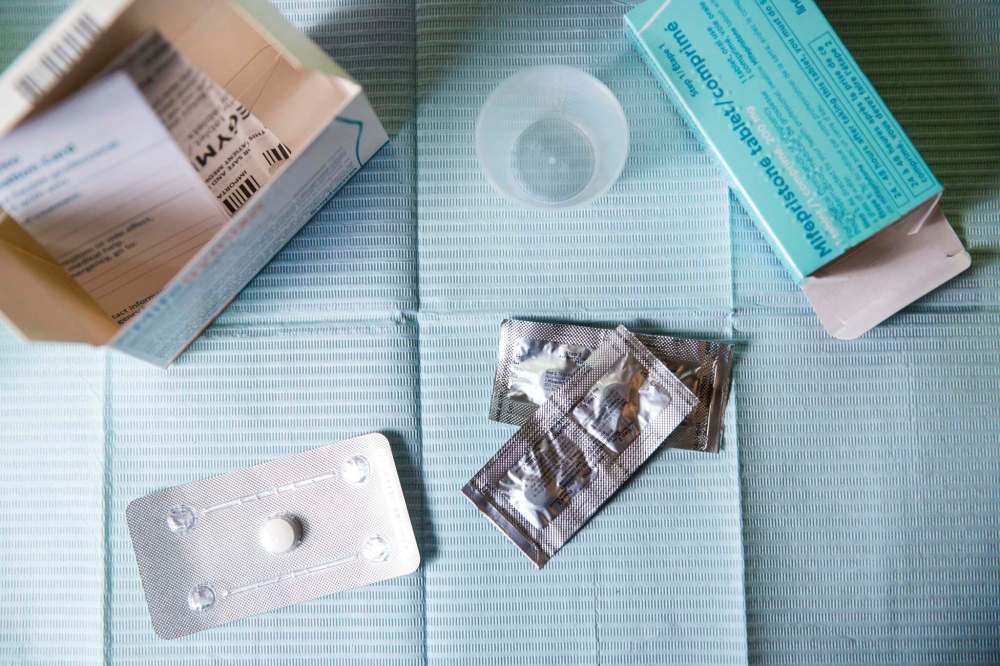University students celebrate at legislature after province’s weekend abortion-pill announcement
Advertisement
Read this article for free:
or
Already have an account? Log in here »
To continue reading, please subscribe:
Monthly Digital Subscription
$0 for the first 4 weeks*
- Enjoy unlimited reading on winnipegfreepress.com
- Read the E-Edition, our digital replica newspaper
- Access News Break, our award-winning app
- Play interactive puzzles
*No charge for 4 weeks then price increases to the regular rate of $19.00 plus GST every four weeks. Offer available to new and qualified returning subscribers only. Cancel any time.
Monthly Digital Subscription
$4.75/week*
- Enjoy unlimited reading on winnipegfreepress.com
- Read the E-Edition, our digital replica newspaper
- Access News Break, our award-winning app
- Play interactive puzzles
*Billed as $19 plus GST every four weeks. Cancel any time.
To continue reading, please subscribe:
Add Free Press access to your Brandon Sun subscription for only an additional
$1 for the first 4 weeks*
*Your next subscription payment will increase by $1.00 and you will be charged $16.99 plus GST for four weeks. After four weeks, your payment will increase to $23.99 plus GST every four weeks.
Read unlimited articles for free today:
or
Already have an account? Log in here »
Hey there, time traveller!
This article was published 03/06/2019 (2384 days ago), so information in it may no longer be current.
What was supposed to be a protest turned into a party on the steps of the legislature Monday, two days after the Manitoba government announced it would provide universal coverage of Mifegymiso to women seeking medical abortions.
University of Manitoba students, who founded the group Medical Students for Choice last October, organized a rally to push the province to provide the abortion pill free of charge.
The students also gathered more than 2,000 letters of support, which they delivered to Status of Women Minister Rochelle Squires and Health Minister Cameron Friesen.

On Saturday, Squires disclosed the provincial policy shift the students were calling for.
“We had no indication this was going to happen. It was a complete surprise,” said Jacqueline Donner, a U of M medical student. “But of course, after the initial sort of shock settled, we were really happy. This is a great move for Manitoba and it will benefit so many people.”
“Universal coverage was always the first step for us, but we think there are many other issues to access,” added classmate Lucy Karp.
“We think it’s the responsibility of the government to make sure that individuals across Manitoba who might not access abortion are aware that this is now universally covered. We’d also like to see a broad scope of practitioners who can prescribe Mifegymiso,” she said, citing nurse practitioners and midwives as possibilities.
Mifegymiso, a two-pill treatment, previously cost patients without insurance coverage upwards of $300. It was only available at clinics providing surgical abortions in Winnipeg and Brandon.
About three years ago, Health Canada approved distribution of Mifegymiso and in April, provided an update noting patients no longer have to undergo ultrasounds before getting the medication. Prescribers can use their “medical judgment” to determine gestational age of pregnancies and rule out ectopic pregnancies, Health Canada said.

Squires noted the latest federal development was what opened the door for universal coverage.
“There was never a change, of course. We were always on the path to providing reproductive health services via Mifegymiso or the abortion pill, since it was launched in the province of Manitoba,” she told reporters Monday, noting the challenges providing the pill will pose.
“This is unique. There has never been a product that has been offered in this manner universally, per se, in the province of Manitoba…. We know that there are a lot of T’s to cross and I’s to dot, if you will, but we’ve asked our officials to make quick work of this.”
NDP status of women critic Nahanni Fontaine emphasized community advocacy — including sustained pressure from the students and from staff at the Women’s Health Clinic — helped change policy, leaving Saskatchewan as the last province where Mifegymiso isn’t universally available.
“It is the right decision, but it is actually just the bare minimum that this government has done in respect of women and girls and trans peoples’ reproductive health,” Fontaine said.
“Today is a testament to those that fought and lobbied the government. Rest assured that this is because of that work and the government came along this journey kicking and screaming. Myself alone, I asked about the abortion pill 57 times in question period over the span of three years. It shouldn’t be that bloody hard to get reproductive justice in Manitoba in 2019.”

jessica.botelho@freepress.mb.ca
Twitter: @_jessbu




